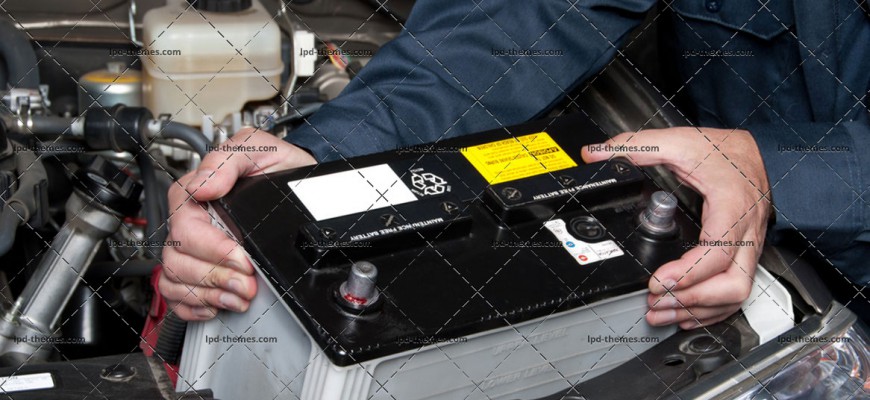Car Battery

An automotive battery is a type of rechargeable battery that supplies electric energy to an automobile. Usually this refers to an SLI battery (starting, lighting, ignition) to power the starter motor, the lights, and the ignition system of a vehicle’s engine.
Automotive SLI batteries are usually lead-acid type, and are made of six galvanic cells in series to provide a 12-volt system. Each cell provides 2.1 volts for a total of 12.6 volts at full charge. Heavy vehicles, such as highway trucks or tractors, often equipped with diesel engines, may have two batteries in series for a 24-volt system or may have parallel strings of batteries.
Lead-acid batteries are made up of plates of lead and separate plates of lead dioxide, which are submerged into an electrolyte solution of about 38% sulfuric acid and 62% water. This causes a chemical reaction that releases electrons, allowing them to flow through conductors to produce electricity. As the battery discharges, the acid of the electrolyte reacts with the materials of the plates, changing their surface to lead sulfate. When the battery is recharged, the chemical reaction is reversed: the lead sulfate reforms into lead dioxide and lead. With the plates restored to their original condition, the process may now be repeated.
Mechanic and Woman

Automotive garages and repair shops can be divided into several categories.
Firstly, there are the auto parts stores or motor factors who also maintain service operations. This is not common in the United Kingdom but more common in the US.
A majority of automobile repair workshops are independently owned and operated businesses. These may also include regional or national chains and franchises including OEM car dealership sites. In the US, these sites are commonly certified by their respective manufacturer to perform warranty and recall repairs by that manufacturer or distributor. Independent automobile repair shops in the US may also achieve certification through manufacturer sponsored programs. In the European Union a recent law (The EC Block Exemption Regulation 1400/2002 (October 2003[2])) allows motorists more flexibility in selecting where they can get their car serviced.
Thanks to this legislation maintenance and service work does not have to be done by the main dealer as long as the garage uses Original Equipment ‘Matching Quality’ parts, and are recorded as such, and the garage follow the manufacturer’s service schedules.
http://en.wikipedia.org/wiki/Automobile_repair_shop


